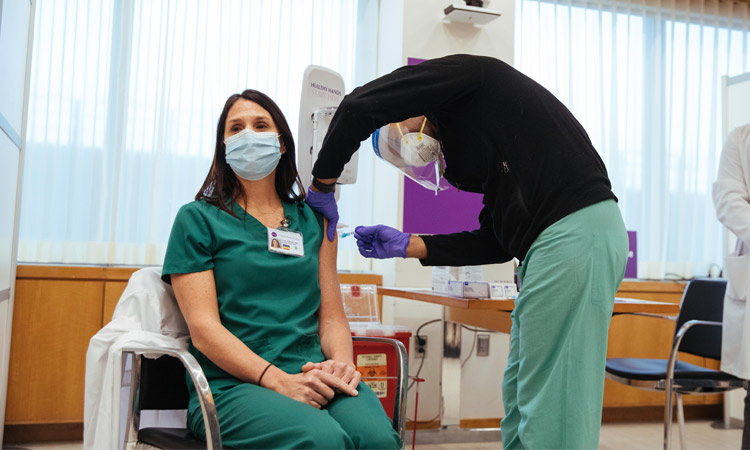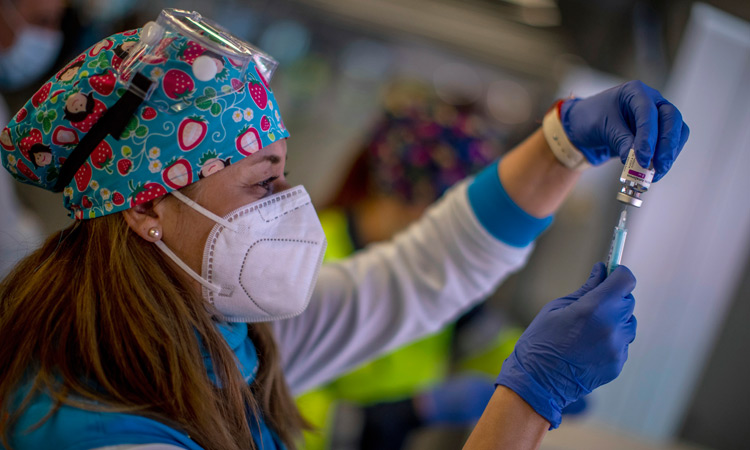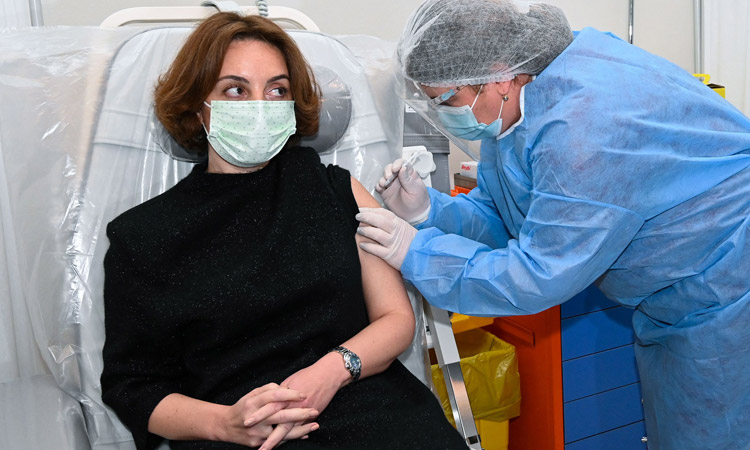VIDEO: Saudi Arabia kicks off three-phase coronavirus vaccination campaign

A Saudi woman gestures after she received the first dose of a coronavirus vaccine in Riyadh on Thursday. Reuters
Gulf Today Report
Saudi Arabia kicked off a three-phase COVID-19 vaccination programme on Thursday, with the health minister among those inoculated after the first shipment of the Pfizer-BioNTech vaccine arrived in the kingdom.
Along with Health Minister Tawfiq Al Rabiah, a woman in a wheelchair and another man were among the first to be administered the vaccine at a centre in Riyadh, an AFP photographer reported.
"This is the beginning of the end of the crisis," Rabiah told reporters.
People aged over 65 as well as those with chronic ailments or at a high risk of infection will receive the vaccine in the first stage, and those aged over 50 in the second, the health ministry said.
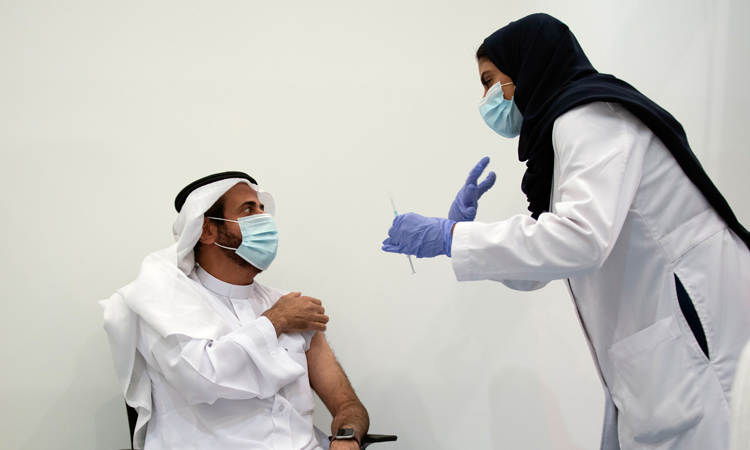
Everyone else will be vaccinated in the third stage, the ministry said, without specifying the dates for each phase or how long the mass campaign would take.
The Gulf kingdom has a population of more than 34 million, according to official figures.
More than 100,000 people have registered so far through an online application called "Sehaty," the ministry said, adding that the vaccine would be "free for all citizens and residents."
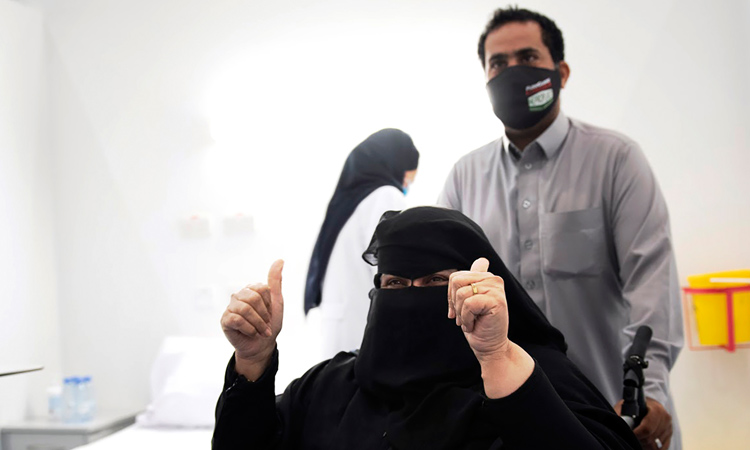
The health ministry said that obtaining the vaccine is free of charge for all citizens and expatriates, in implementation of the directives of the Kingdom's wise leadership, the Saudi Gazette reported.
The ministry confirmed the safety and efficacy of the vaccine after effective passage of the vaccine testing phases, and the successful tests showed its strong immune response and antibodies in those who received trial shots.
The health ministry explained that the vaccination will be administered over three phases and that each phase has targeted groups.
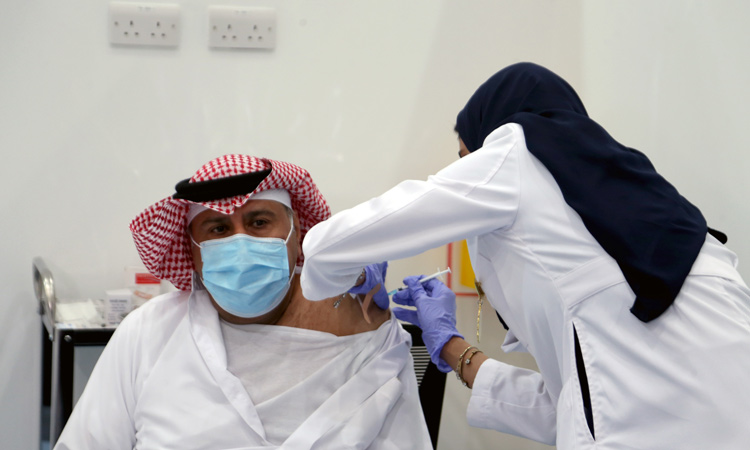
People aged over 65 as well as those with chronic ailments or at a high risk of infection will receive the vaccine in the first stage, and those aged over 50 in the second, the health ministry said.
The first phase will cover citizens and expatriates over the age of 65 years; health and other professionals who are most vulnerable to infection during their fight with the pandemic; people who are obese and have a body mass index (BMI) of over 40.
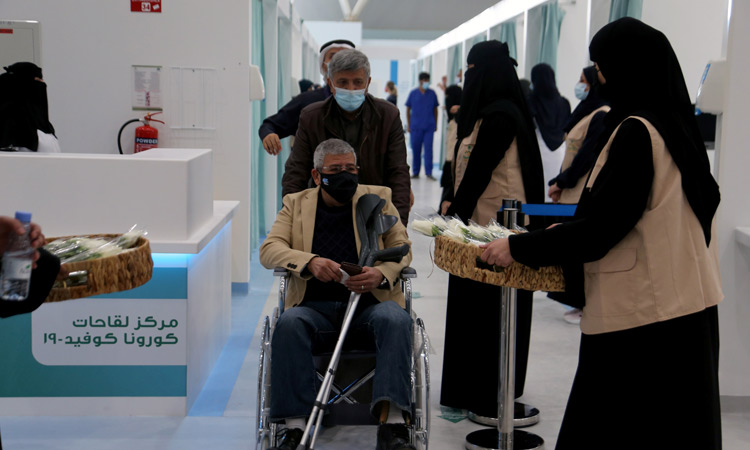
It would also include those who have immunodeficiency, such as those who underwent organ transplantation or taking immunosuppressive drugs; those who suffer from two or more of the following chronic diseases: asthma, diabetes, chronic kidney disease, chronic heart disease including coronary artery disease, and chronic obstructive pulmonary disease, and those with a history of previous stroke.
The target group in the second phase include citizens and expatriates who are over the age of 50; the remaining health practitioners, and those who have one of the following chronic diseases: asthma, diabetes, chronic kidney disease, chronic heart diseases including coronary artery disease, chronic obstructive pulmonary disease, and active cancer and those who have obesity and have BMI between 30 and 40.
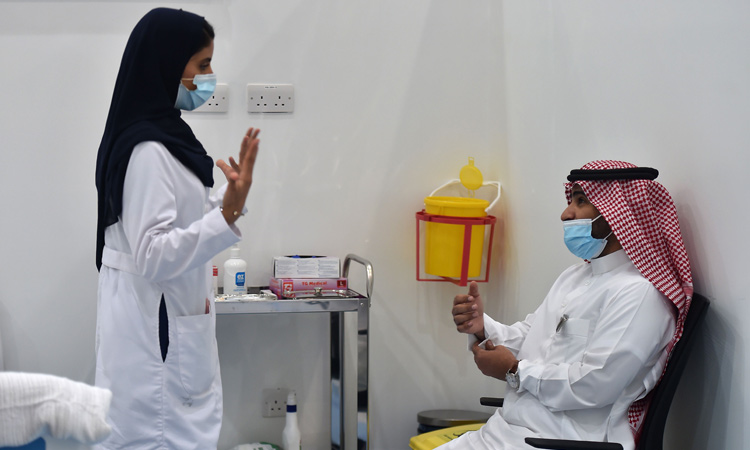
The targetted group in the third phase includes all citizens and expatriates who wish to receive the vaccine.
The ministry of health pointed out that this step comes as a continuation of the great efforts and proactive steps that the Kingdom has taken since the outbreak of the pandemic, and it had a vivid role in stemming the spread of the pandemic and safeguarding the health and safety of citizens and expatriates.

